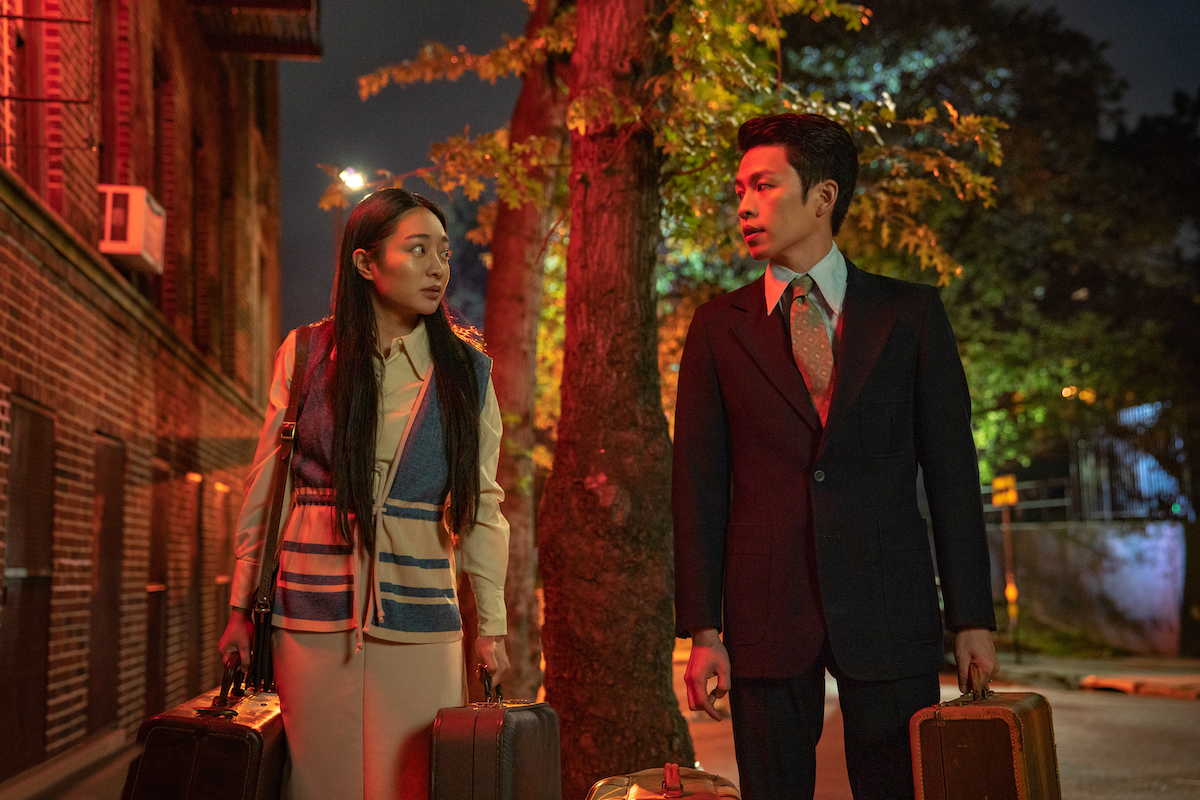This article contains some spoilers for the film “Tigertail.”
A universal experience that many immigrants can share and understand is the dream to live a better life. On the other side of this dream, though, is disillusionment. It is far from easy to make this sacrifice, especially leaving one’s homeland to restart somewhere else completely.
Inspired by his own father’s experiences, director Alan Yang tackles these hardships in Tigertail, a poignant and incredibly personal story about family, sacrifice, and the American Dream. An original Netflix film, released on April 10th, Tigertail centers around Pin-Jui (played in his youth by Lee Hong-Chi and in the present by Tzi Ma), a former Taiwanese factory worker who has moved to New York, thanks to an arranged marriage with Zhenzhen (Kunjue Li and Fiona Fu), in search for his American Dream.
In flashbacks, we can see Pin-Jui had a difficult upbringing. He struggles to get by with his mother while working a dangerous factory job, stealing moments with his first love, Yuan (Yo-Hsing Fang and Joan Chen) in between. In the present, we can see the impact of these sacrifices on Pin-Jui’s life. He is alone and divorced. He cannot reach out to his struggling daughter Angela (Christine Ko). Above it all, he is grieving his lost time, opportunities and people.
Tigertail has a rather simple storyline, focusing on the everyday struggles of Pin-Jui and Zhenzhen as they struggle to adjust to their new life in America. It notably jumps back and forth between the past and the present. The poignant flashbacks of a young and vibrant Pin-Jui, in love with an equally vivacious Yuan, become saturated with nostalgia once we return to the reality: an older Pin-Jui, eating and living alone.

Pin-Jui (Lee Hong-Chi) kisses his first love, Yuan (Yo-Hsing Fang). Source: Twitter
There is no grand conflict or high-stakes situation, just the ripple effects of the American Dream’s reality on multiple generations. The lack of a major conflict may render Tigertail slow and unsatisfactory to some, but I think this is the film’s strength. The modest nature of Pin-Jui’s story and upbringing is made bright by the smallest moments of kindness and innocence. We can see it when young Pin-Jui and Yuan sing Otis Redding together in the moonlight; when they flee together from an expensive restaurant without paying; when Pin-Jui buys Zhenzhen a (rather dysfunctional) piano to learn together.
These moments are the most powerful because we, as an audience, know that they cannot ever return. Pin-Jui becomes trapped in a dead-end job and a loveless marriage. Meanwhile, his mother remains in Taiwan. He doesn’t ultimately achieve his American Dream. Tigertail’s simplicity is what makes it hit so hard because so many immigrants can understand what it’s like to be in Pin-Jui’s shoes, to yearn for something for so long, and to be unable to get that.
#Tigertail is out now everywhere in the world Netflix is available! Please share and tell an Asian friend, a friend who’s had and lost love, a friend who has a daughter, a friend who has a father… this one’s for all of us! pic.twitter.com/DnFKDLbuim
— Alan Yang 楊維榕 (@alanyang) April 10, 2020
Moreover, Tigertail is, at its core, a love letter for the Asian community. On a literal level, I could understand the film because most of it is in Mandarin or Taiwanese. This allows the audience to become wholly immersed in Pin-Jui’s heritage, culture and life.
Additionally, many parts of Tigertail were hard to watch, painful because I could understand them so intimately. I could relate to Angela and her need to understand her father. Sometimes the tough and cold love of parents doesn’t translate nearly well enough for a child seeking comfort and warmth. I could feel Zhenzhen’s relief of seeing someone else who looked like her, in a place where she was the minority. I could understand Angela and Pin-Jui because I also want to return to my parents’ homeland and witness for myself the life that my parents have lived. Yet, I still do not know much about my parents’ history. From familial conflicts to the difficulties of assimilation, to the translation errors that occur between languages and actions, Yang’s story is something that we all can identify with.
Tigertail is dedicated to the Asian community, told through the eyes of a Taiwanese family across generations. I am grateful that such an important story could be told by someone who understood it, especially now, when the Asian community needs strength and compassion.
Maybe other audiences who may not have experienced the same ordeals might take Tigertail for granted because it’s hard to fully appreciate the impact of a sacrifice like Pin-Jui’s without having gone through it yourself. But even so, Tigertail has universal messages too. We have all experienced loss – whether it’s time or love or family. But Yang argues that, even at Pin-Jui’s age, it is never too late to begin opening up.
Tigertail is ultimately a beautiful film capturing one aspect of the Asian experience that I hope you will support and share. We are only scratching the surface of better Asian representation in cinema. From The Joy Luck Club to Crazy Rich Asians to The Farewell, and now Tigertail, we have undoubtedly come far. These kinds of films highlighting the different facets of Asian culture and life are crucial, and Tigertail will hopefully help blaze the trail for many more to come.
Featured Image by Netflix via Twitter











